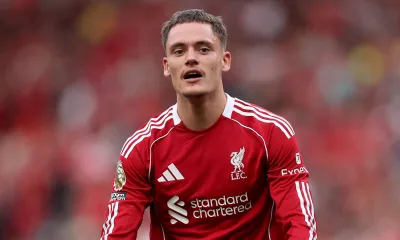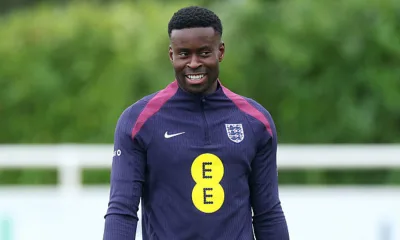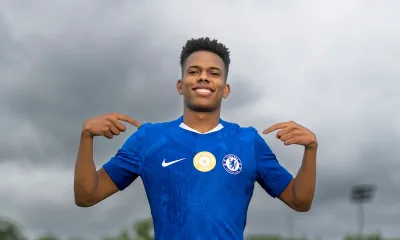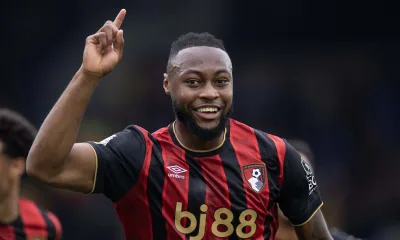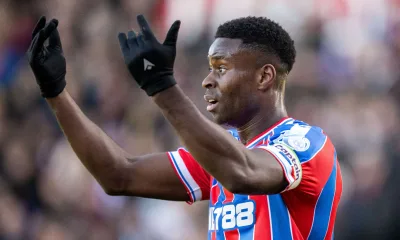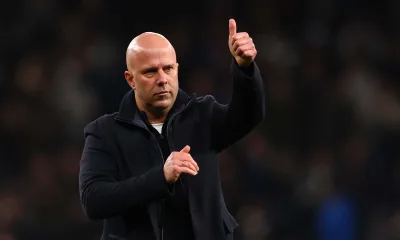Arsenal
Arteta Commends Young Arsenal Talent Max Dowman After Milan Friendly
Mikel Arteta praises 15-year-old Max Dowman after strong showing against AC Milan in friendly.
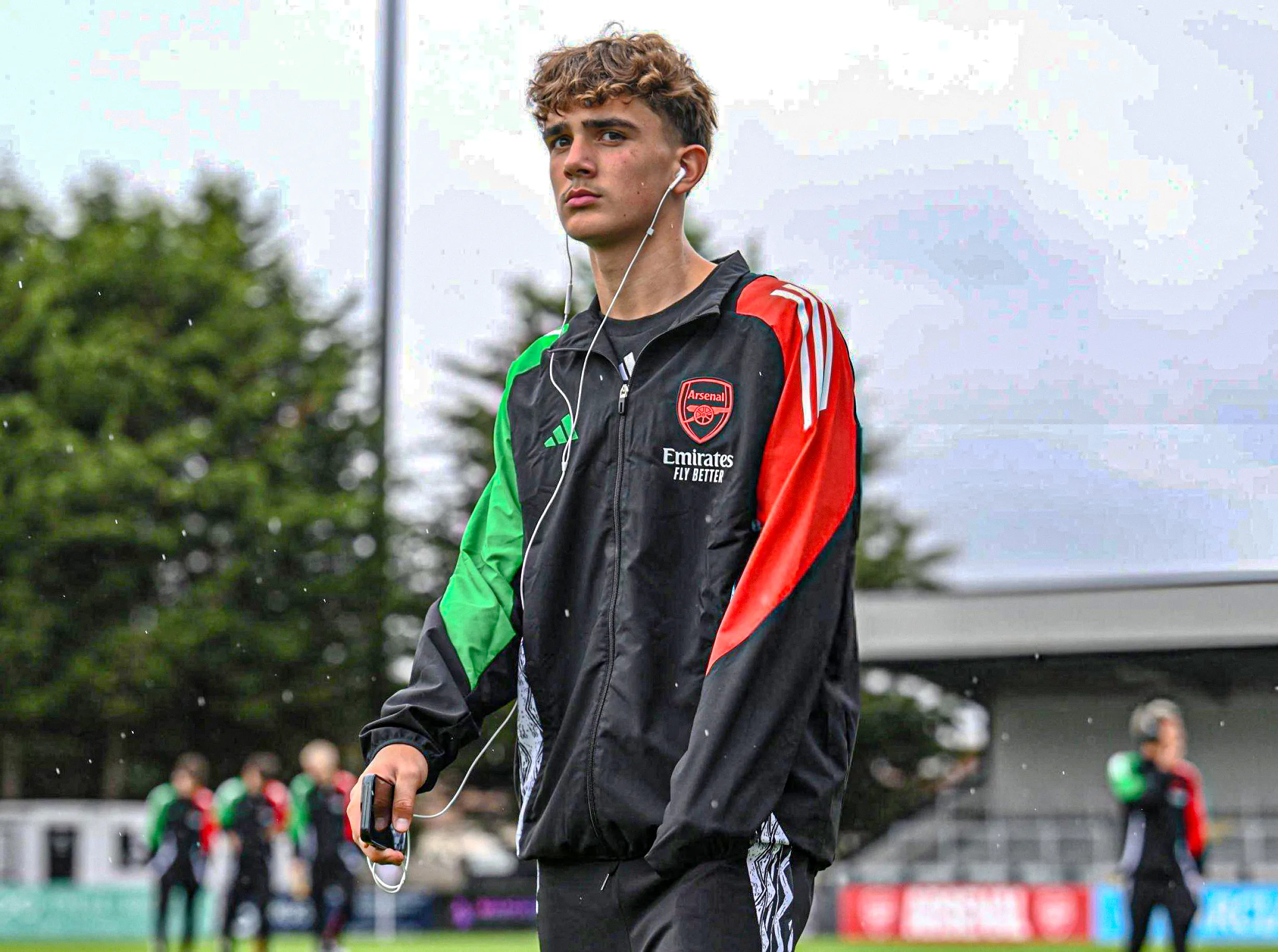
Arsenal manager Mikel Arteta expressed strong admiration for 15-year-old midfielder Max Dowman following his impressive appearance as a substitute in the friendly against AC Milan. Dowman, widely regarded as one of the top young talents in England and Europe, tallied 17 goals and 10 assists from midfield in 22 appearances last season for Arsenal’s Under-18 team. He has also debuted with the Under-21s and occasionally trained with the first team.
“I’m very happy with all the kids, I think they are able to play at that level, with 15 years old, in my opinion, because of the environment, and the culture that is within the team, and when somebody makes you feel so comfortable, so confident, straight away you can go and do it,” Arteta said. “Obviously it gives you the best chance, you have to have the qualities that this kid has.”
Despite growing calls from fans to promote Dowman to the senior squad permanently, Arteta clarified no decisions have been made regarding his immediate future. He emphasized the importance of youth players adapting to the physical demands of senior football, stating, “No, we don’t know, with all the young kids at the end, they are in and around the team constantly, and they are really used to the dynamics, the demands, and especially raising the physical levels.”
Arteta added, “The demands, and actually to be able to perform and impact the game at that level, it demands really, really high physical standards, and they are getting that, and that gives them another platform, and then they will have to earn it.”
Dowman shared the pitch with fellow 15-year-old defender Marli Salmon and academy player Josh Nichols, 18. Established academy graduates Myles Lewis-Skelly and Ethan Nwaneri also featured. Arteta praised the academy’s contribution, saying, “It’s very good. It’s a lot of work, in our academy, all the coaches, people involved, and it’s a moment to give opportunities, to reward them, and they certainly took the chance today, in difficult circumstances, against a very big team. It’s incredible how, at 15 years old, they can perform at that level.”

Arsenal
Arteta clarifies Saka absence as Madueke steps into Cup spotlight
Arteta: Saka had a warm-up niggle; Madueke responded when called, with Chelsea tie on Tuesday. Read.
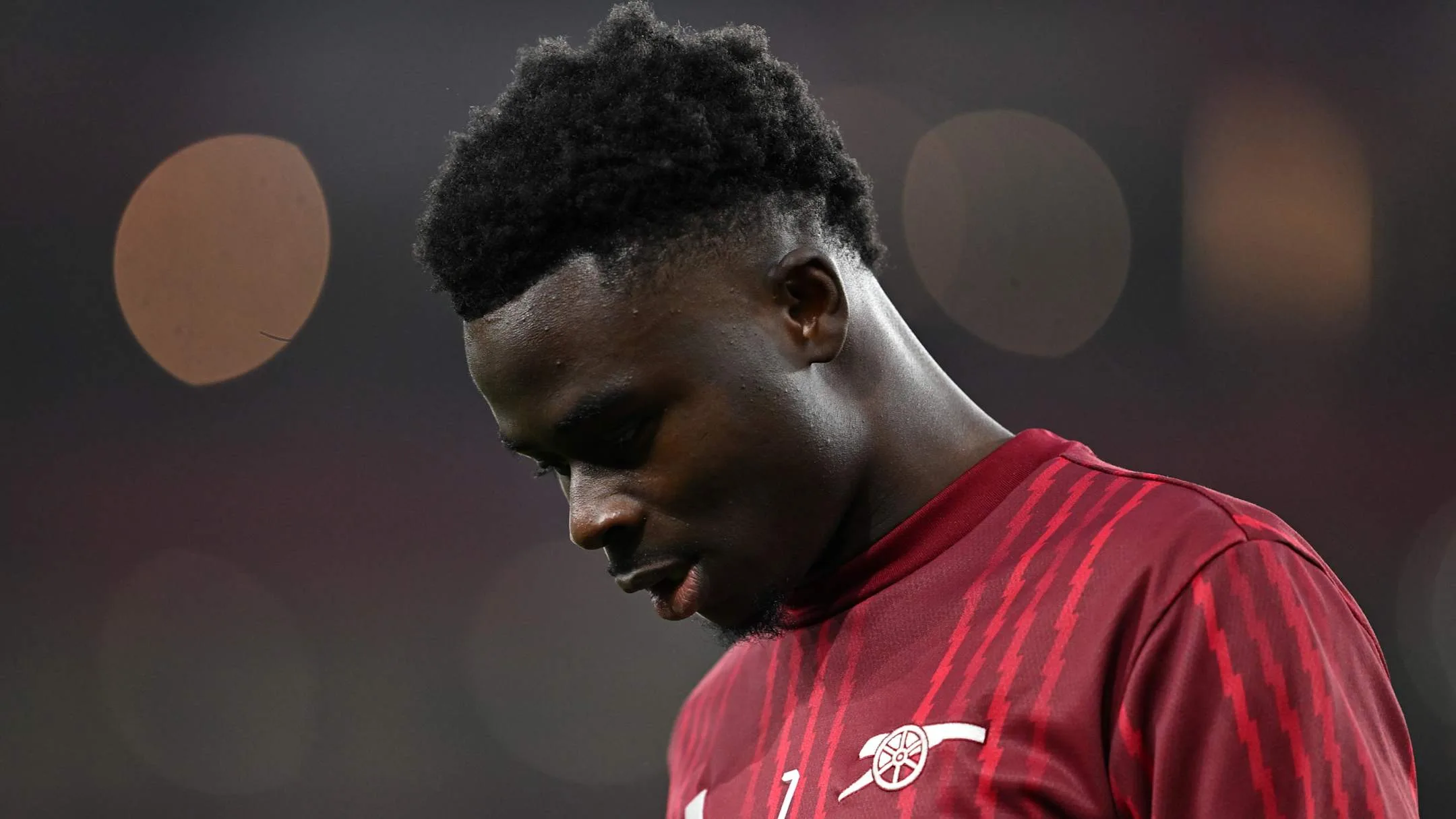
Mikel Arteta confirmed that Bukayo Saka was withdrawn from the squad for Saturday’s win over Leeds United after picking up “a little niggle” in the warm-up. The injury was the only notable setback on a positive day for Arsenal ahead of the second leg of their Carabao Cup semi-final against Chelsea.
“He wasn’t comfortable to start the game, so immediately we made a decision to make that change and bring Noni in,” Arteta said, explaining the decision to replace Saka before kick-off.
Squad depth on the right flank was a specific objective for the club during the summer transfer window. Arteta has been open about his intention to assemble multiple high-quality options in every position, and securing a reliable deputy for Saka was part of that plan.
Arsenal agreed a package worth as much as £52 million ($71.4 million) to sign Madueke from Chelsea, and circumstances provided an early opportunity when Saka was sidelined earlier in the season. While the headline goal-and-assist figures have not matched expectations, Madueke has “undoubtedly passed the eye test this season,” contributing when called upon.
Arteta praised the new arrival for his attitude and preparation. “The way he prepares, the way he’s waiting for opportunity, I think he paid off today because he really impacted the team,” the manager said, highlighting Madueke’s readiness to fill the role.
On the collective task, Arteta added: “We talked before the game, it’s going to be a long game, we’re going to have to navigate through different moments in the game, and we’re going to need everybody fulfilling the role that they have on the day, and I think the players executed that incredibly well.”
Madueke is the leading candidate to occupy the right wing when Arsenal face his former club on Tuesday, though Arteta’s squad contains several possible options for the position.
Arsenal
Clinical Arsenal Cruise to 4-0 at Leeds as Madueke Seizes Late Call-Up
Arsenal recovered from the United loss with a 4-0 victory at Leeds, Zubimendi opened scoring today.
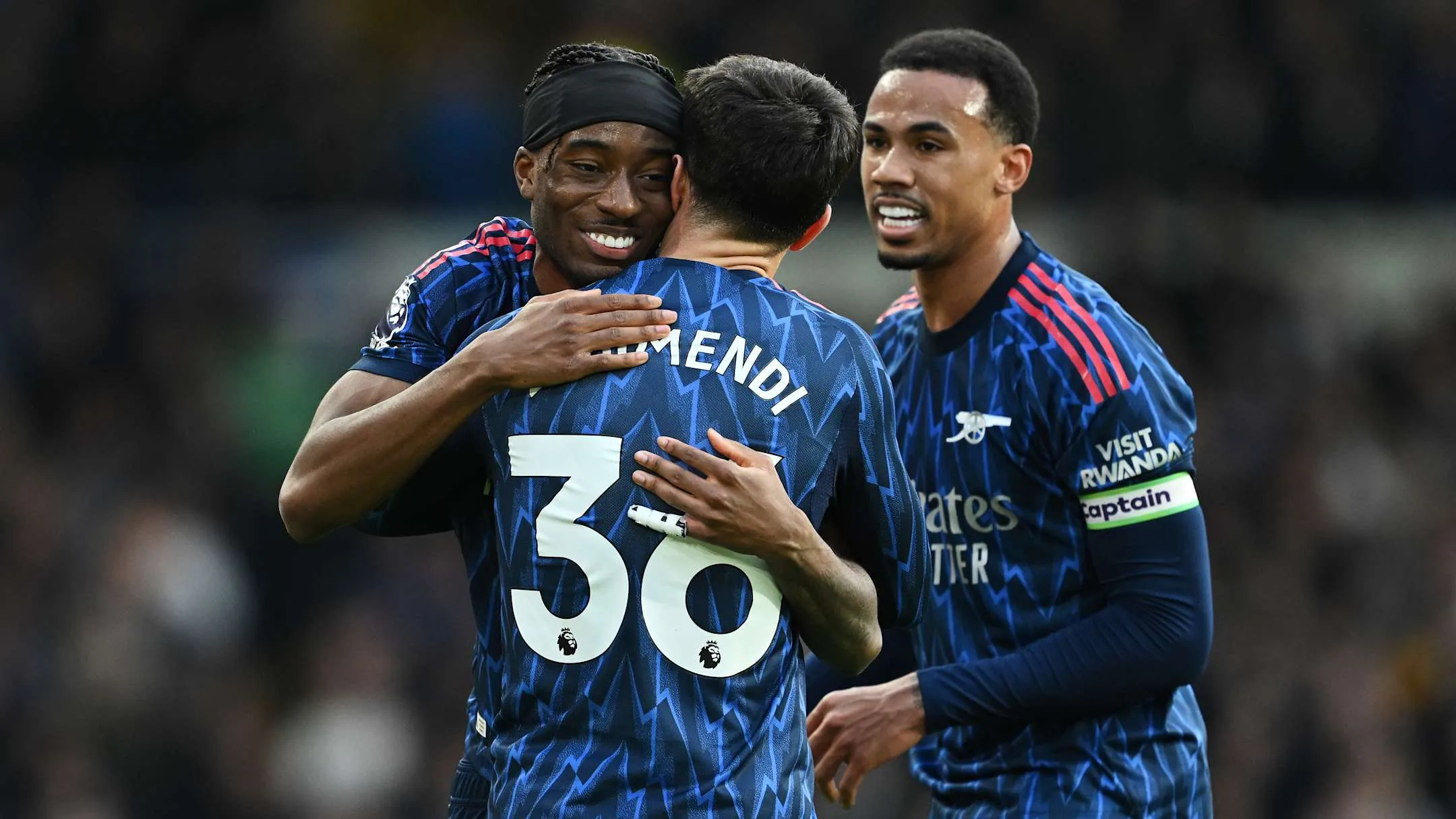
Arsenal responded to last week’s defeat to Manchester United with a 4-0 win away at Leeds United. The Gunners controlled the match from the outset, Martín Zubimendi opening the scoring with a smart header before a corner from Noni Madueke produced an own goal shortly after. Viktor Gyökeres and Gabriel Jesus both netted in the final 20 minutes to make the scoreline emphatic.
Noni Madueke, thrown into the starting lineup moments before kick-off, made an immediate impact. His cross created Zubimendi’s opener and his corner caused the own goal by Karl Darlow. That decisive delivery underlined why Mikel Arteta sought to add the former Chelsea man to his squad.
At the back Gabriel led a physical performance, notably handling Dominic Calvert-Lewin with authority and topping the successful duels for Arsenal. Declan Rice kept the midfield ticking with a steady stream of passes and defensive work. Martín Zubimendi shielded the defence and recycled possession efficiently, earning the match’s highest rating.
Bukayo Saka had been set to start but an injury in the warm-up forced him out of contention, leaving Arsenal to await clarity on the severity of his problem. Madueke’s display further complicates selection decisions on the right flank.
Key player notes and ratings from the match: Martín Zubimendi 8.2, Gabriel Jesus 7.6, Gabriel 7.5, Noni Madueke 7.5, Declan Rice 7.6. Substitutions included Gabriel Martinelli (61′ for Madueke), Martin Ødegaard (61′ for Kai Havertz), Riccardo Calafiori (76′ for Piero Hincapié), Gabriel Jesus (76′ for Viktor Gyökeres) and Eberechi Eze (81′ for Leandro Trossard). Unused subs were Kepa Arrizabalaga, Ben White, Cristhian Mosquera and Christian Nørgaard.
Match statistics underlined Arsenal’s control: possession 51% to 49%, expected goals 2.39 to 0.15, total shots 14 to 3 and shots on target 8 to 1. Arsenal created seven big chances to Leeds’s nil and both sides finished with 79% passing accuracy.
Arsenal
Arsenal make late switch as Bukayo Saka withdraws ahead of Leeds tie
Saka withdrew from Arsenal’s starting XI at Elland Road after he “felt something” in the warm-up…
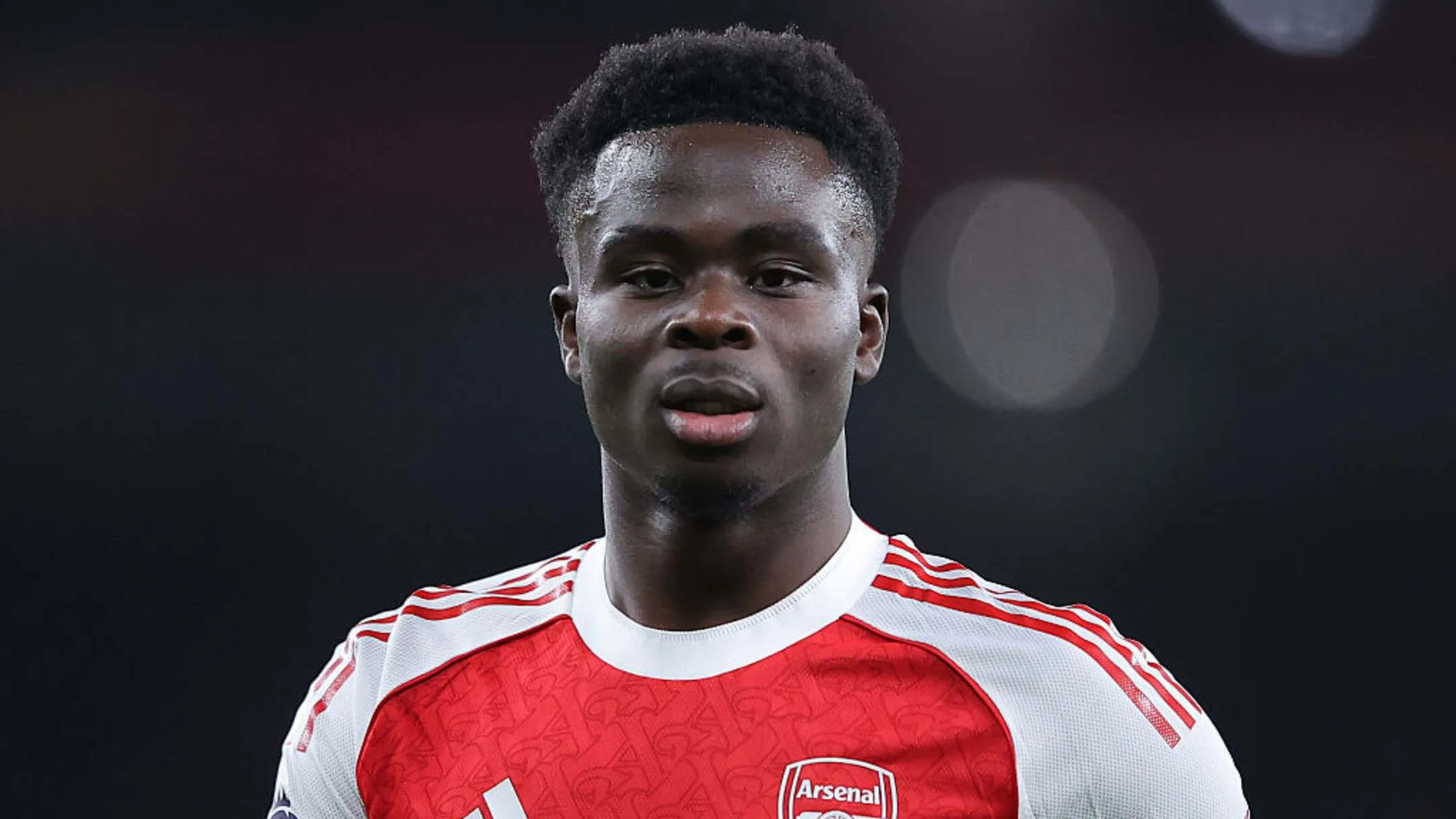
Arsenal, the Premier League leaders, were forced into a last-minute change to their starting line-up on Saturday when Bukayo Saka withdrew before the match at Elland Road.
Saka had travelled to Leeds and was given the nod on the right wing, with plans for him to wear the captain’s armband and resume his usual role on Arteta’s right wing. Those plans changed in the pre-match moments when the winger registered an issue while warming up.
The club confirmed Saka “felt something” while preparing for the game at Elland Road. The team did not disclose any further specifics about the problem, but it was sufficient for the England international to be deemed unavailable for selection.
The absence arrived at short notice and produced a late alteration to the XI, with Saka replaced in the team sheet just minutes before the final whistle. Arsenal made the call after the issue presented itself during the warm-up, and the club determined the player could not take part.
That decision removed an influential figure from the side for a fixture in which Arsenal arrived as league leaders. The club offered no further detail on the nature of the injury, only that the matter prevented Saka from featuring on Saturday afternoon.
The late withdrawal underlines how quickly pre-match circumstances can force tactical and personnel changes. Arsenal moved to adjust their selection immediately after the issue emerged during preparations at Elland Road, leaving supporters and staff to await further updates on the player’s condition.

